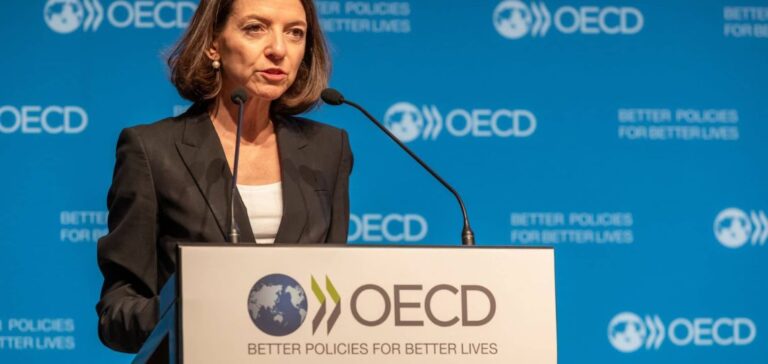Europe Secretary Laurence Boone on Wednesday called on the Biden administration to work with the European Union (EU) on“ expandedpartnerships ” with other regions of the world, including on materials needed for the energy transition.
“The idea is that we get together, beyond the EU and the G7, to source critical materials in producing countries to diversify our supplies. We must coordinate between friendly countries,” insisted Ms. Boone, who has been visiting the United States since Monday. “It is about seeing how to expand our partnership to other regions of the world” being in the same approach as the United States and the EU, such as some Asian countries, “to encourage them to look beyond”, added Laurence Boone.
The trip was also an opportunity to highlight, both to the private sector and to the administration, recent European advances, such as the European Commission’s (EC) proposal for a “net zero” industry regulation, validated by the European Council, as well as the validated reform of the European electricity market. The draft European regulation is intended as a response to President Biden‘s major climate plan (IRA), which was definitively adopted last summer and which has since raised concerns, both in Europe and among the United States’ Asian partners, led by Japan and South Korea.
“It is a response to the IRA that puts us on an equal footing, it is no longer Europe that is asking for something on this subject but suddenly Europe is stronger. This creates a different relationship and for companies it is reassuring, because it gives a framework” to transatlantic relations, said the Secretary of State. “We wanted to emphasize the speed with which we reacted, between the decision at the December Council, where we decided to meet on the IRA, and the March Council, where we reached an agreement” between member states, she added. A reminder that is all the more important, for the Secretary of State, as the U.S. Department of the Treasury must clarify in the coming days the framework for the application of the IRA concerning subsidies for electric vehicles as well as the materials necessary for the energy transition.
On Monday, Japan and the United States announced an agreement on the subject that bodes well for the inclusion of Japanese products in the application framework and the EU hopes to receive equivalent treatment.
Visiting Washington at the end of the week, the European Commissioner for the Digital Economy, Margrethe Vestager, is scheduled to meet with U.S. Secretary of Commerce Gina Raimondo and then Treasury Secretary Janet Yellen to discuss these issues.





















